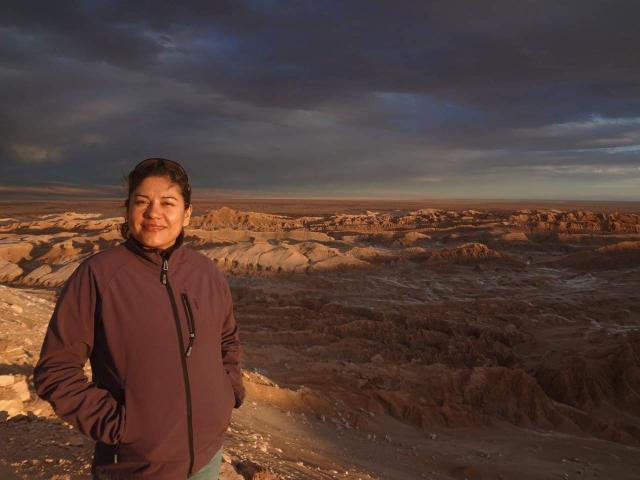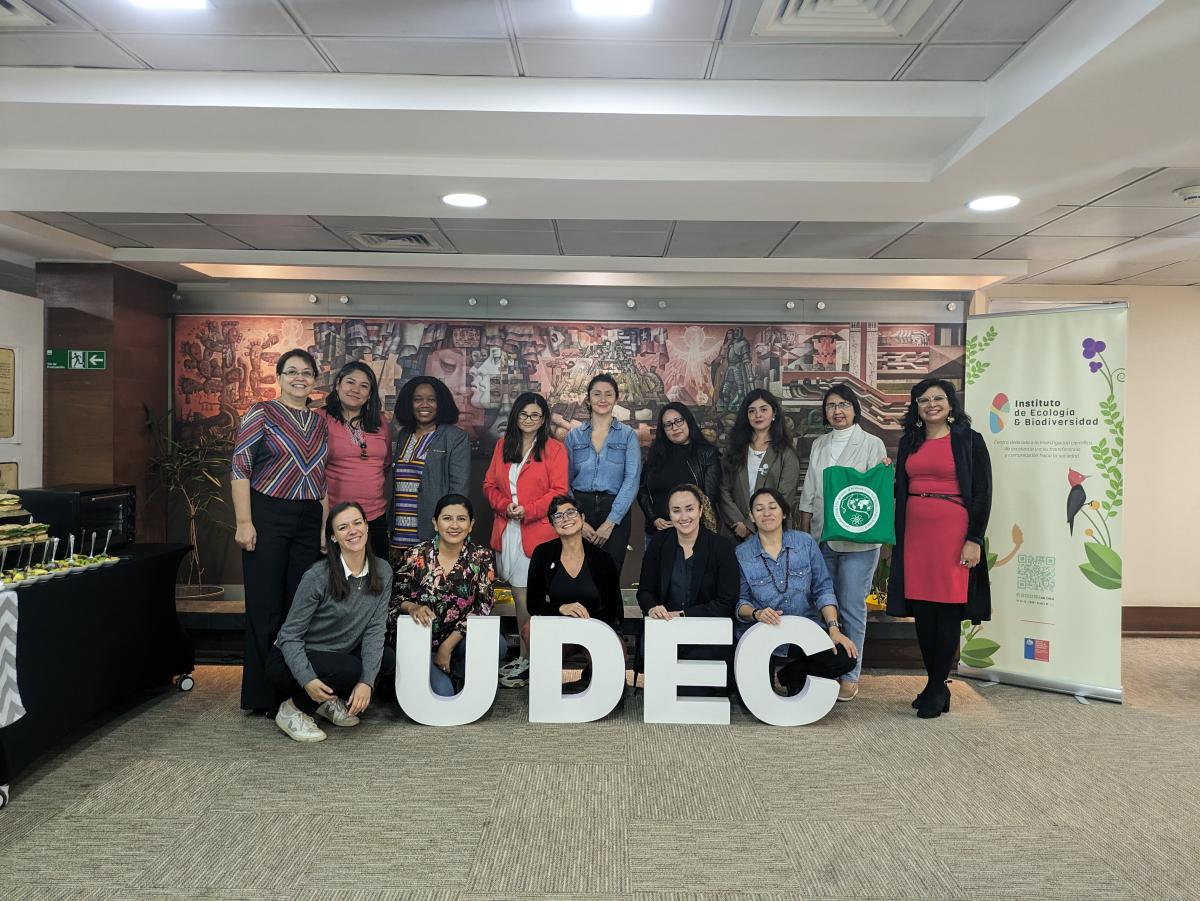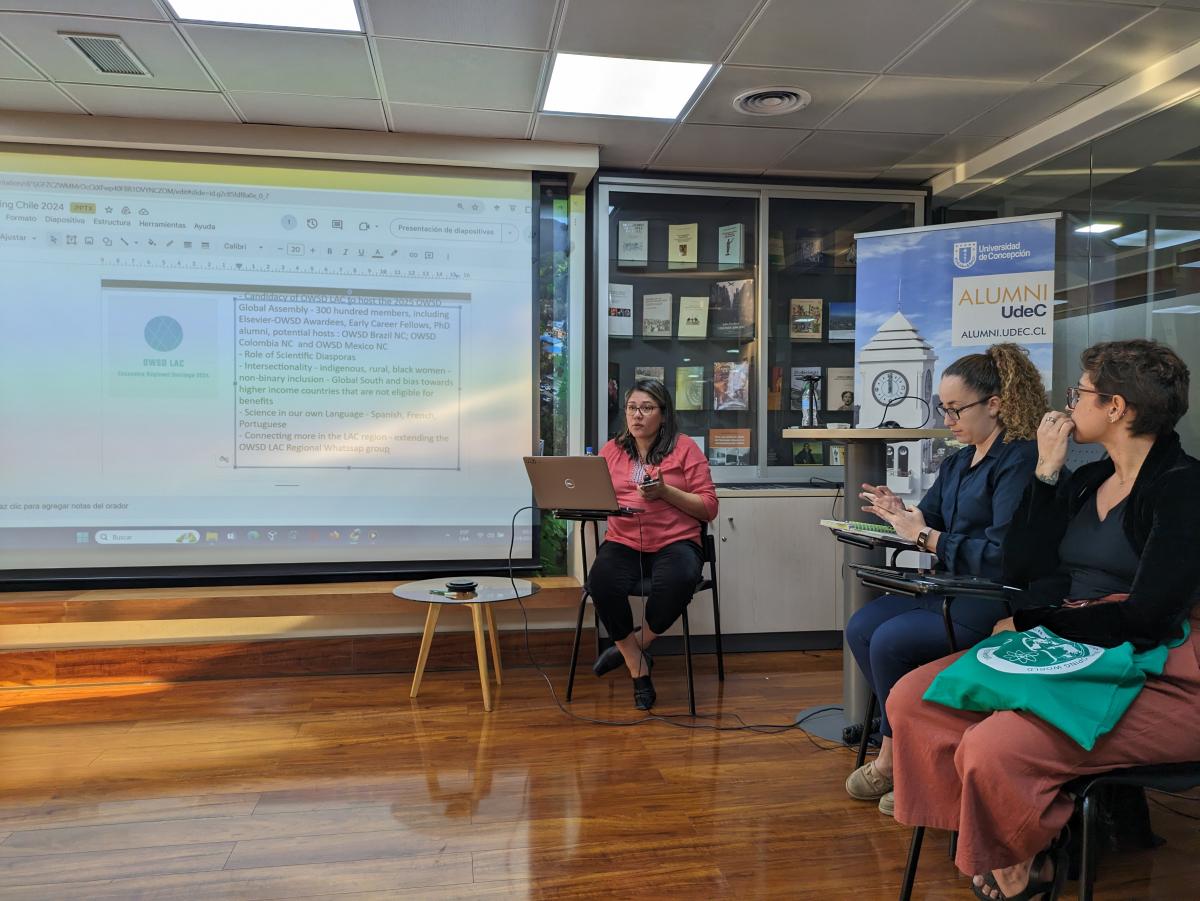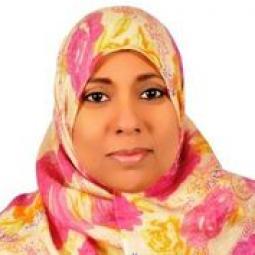
Kleinsy Bonilla
Latin America & Caribbean
Guatemala
Social and Economic Sciences
Building Bridges for Science: The Impact of Kleinsy Bonilla as Vice President of OWSD in Latin America and the Caribbean
In the challenging socio-economic context of developing countries, knowledge should serve to solve the varied problems faced by our societies.

Dr. Kleinsy Bonilla, a distinguished senior researcher and international consultant, serves as the Vice President for the Latin America and Caribbean (LAC) region of the Organization of Women in Science for the Developing World (OWSD). With a rich background in Science Diplomacy, Science and Technology Policy, and Science Diasporas, Dr. Bonilla has made significant contributions to science policy and capacity building in developing countries. Her leadership has been instrumental in expanding OWSD’s presence across LAC, fostering collaboration, and empowering women in science.
Her career spans multiple research projects and international consultancy roles. When she completed her doctoral studies in International Development Cooperation at Kyung Hee University in South Korea, she initially thought that having an academic background rooted in various social sciences—Law, Political Science, and Economics—might limit her growth as a scientist. Instead of focusing on a single discipline, she combined several, which ultimately became a strength: blending conceptual frameworks and analytical categories from various sciences.
Moreover, her involvement in research projects on Science Diplomacy, Science and Technology policies in Latin America, and recently, Engaging Science Diasporas from the Global South, required multidisciplinary collaboration. Her diverse scholarly background proved helpful. Living for extended periods in South Korea, Chile, Brazil, Ecuador, Iceland, and Norway has allowed her to experience a variety of research environments, enriching her knowledge. As a Guatemalan, she also has a deep interest in Central America, which further shaped her research endeavors.
As the Vice President for the Latin America and Caribbean region of OWSD, Kleinsy Bonilla played a pivotal role in expanding the presence and influence of the organization. Since 2021, the presence of OWSD in Latin America and the Caribbean (LAC) has grown rapidly: from 3 national chapters in 2020 OWSD has now 16 in 2024, with three more in progress. This success, according to Bonilla, can be partially explained by the widespread use of social media and improved communication during the COVID-19 pandemic. "Robust OWSD National Chapters like Guatemala, Colombia, Ecuador, and Mexico have shared experiences and lessons with others in the LAC region, contributing significantly to this growth", she explains.
However, there are more factors that contribute to OWSD's solid expansion in LAC. First is the engagement of women from the scientific diaspora. In countries like Honduras, El Salvador, Colombia, Peru, and Guatemala, up to 40% of chapter members reside abroad, offering valuable international perspectives. Second is the recognition of social sciences and the inclusion of members with degrees in these fields. Third, ensuring balanced leadership representation, which includes women at different career stages, has fostered mentoring and leadership development. These chapters provide platforms for networking, mentorship, and resource sharing, strengthening the scientific community and enhancing scientific capacity in their countries.
In fact, one of Dr Bonilla's main areas of focus is the connection between social sciences and natural sciences. When asked why she believes this integration to be crucial for advancing scientific research and policy-making, particularly in developing regions, she once again highlights the need that in developing countries, knowledge should address the varied challenges faced by the societies: "In OWSD LAC national chapters, we encourage collaboration between social and natural sciences to advance policy-making. The social impact of OWSD members' research is highlighted through various channels. For example, several OWSD Guatemala members have taken leadership positions in public institutions, demonstrating the influence of their research. Similar cases are seen in Colombia, Ecuador, and Mexico, particularly in influencing local governments."
Addressing global challenges like environmental deterioration, climate change, and public health requires concerted efforts beyond geographic borders. Traditionally, LAC countries have advanced their science and technology policies in isolation, which is troublesome. Despite shared language (Spanish/Portuguese), culture, and history, further cooperation is needed. The OWSD LAC family exemplifies this by fostering collaborations among members from different national chapters. Notable examples include research partnerships among OWSD members from Guatemala, Honduras, El Salvador, and Panama. The increasing collaboration within OWSD LAC is motivating, as demonstrated by the First OWSD LAC Regional Leadership Summit in 2022 and the Second Leadership Summit and First Regional Meeting in 2024.
Finally, Dr Bonilla's work on science diasporas is quite fascinating. In many LAC countries, weak and insufficient local systems for education and funding push talented scientists to study and work abroad, creating science diasporas. Previously viewed as "brain drain," these diasporas now offer opportunities for collaboration and resource sharing. Improved global logistics and communication demonstrate their potential to benefit home countries. OWSD has facilitated connections with the Guatemala and Honduras Science Diasporas, and chapters in Nicaragua, Venezuela, and Haiti have benefited from diaspora contributions.












































